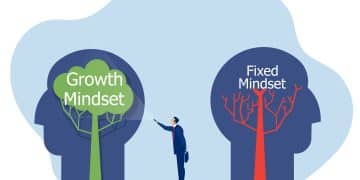From dreamer to doer: How to become an entrepreneur and build your own legacy

In a rapidly evolving global economy, more people than ever before are seeking freedom, independence, and financial success through entrepreneurship. The question on everyone’s mind is: how to become an entrepreneur?
Whether you’re looking to leave a 9-to-5 job, solve a problem you’re passionate about, or turn a hobby into a business, the entrepreneurial journey can be rewarding and transformative. But it requires more than just an idea.
Becoming a successful entrepreneur involves a blend of mindset, skills, planning, perseverance, and an unwavering desire to create something impactful.
Let’s dive deep into what it takes to not only launch your own business but also sustain and scale it in today’s competitive landscape.
What does it mean to be an entrepreneur?
To understand how to become an entrepreneur, one must first grasp what entrepreneurship truly entails.
An entrepreneur is someone who identifies a gap in the market and leverages resources, innovation, and risk-taking to fill that void.
Entrepreneurship is not just about starting a business, it’s about building value through innovation and solving real-world problems.
According to Harvard Business School Online, successful entrepreneurs often possess characteristics like resilience, creativity, adaptability, and leadership. These are not just innate traits; they can be cultivated through experience, education, and strategic thinking.
A common question in the journey of how to become an entrepreneur is whether formal education is necessary. While there is no single path, education can provide a significant advantage.
Foundational business knowledge, such as marketing, finance, accounting, and operations, equips aspiring entrepreneurs with the tools they need to make informed decisions.
The University of San Diego notes in this comprehensive guide that formal education, especially programs focusing on entrepreneurship — can help individuals develop critical thinking skills, understand business strategy, and connect with mentors and networks.
However, real-world experience and continuous learning are equally vital. Online platforms, such as Shopify, offer resources to support both new and seasoned entrepreneurs.

Cultivating the entrepreneurial mindset
When exploring how to become an entrepreneur, mindset is often the differentiating factor between those who succeed and those who don’t.
Entrepreneurship is inherently uncertain and filled with challenges, which makes mental fortitude critical.
Successful entrepreneurs are not afraid of failure — they embrace it. Each setback is a lesson, a stepping stone toward success.
Cultivating this growth mindset allows individuals to remain flexible, learn from mistakes, and innovate continuously.
Moreover, self-motivation, discipline, and passion are crucial drivers. No one tells entrepreneurs what to do—they must constantly push themselves. Entrepreneurs must also be able to handle risk and ambiguity while remaining focused on long-term goals.
Identifying and validating a business idea
A vital part of how to become an entrepreneur is finding a business idea that aligns with your strengths, passions, and market demand.
Entrepreneurs typically start by observing problems in their daily lives or industries and brainstorming creative solutions.
However, having an idea is not enough. It must be validated. Market research is essential to determine if there is a real demand for the product or service you plan to offer.
Engaging potential customers, analyzing competitors, and evaluating pricing models are all key steps in this process.
A strong business idea is one that solves a real problem, provides value, and has a clear target audience. Testing your idea with a minimal viable product (MVP) can help validate assumptions and reduce risks early on.
Creating a solid business plan
Understanding how to become an entrepreneur includes knowing the importance of a business plan. A well-structured business plan is more than just a document — it’s a strategic roadmap that outlines your vision, goals, market analysis, financial projections, and operational structure.
A clear business plan increases your chances of securing funding, attracting partners, and maintaining focus. It serves as a living guide that evolves as your business grows.
While many entrepreneurs skip this step, especially in early-stage startups, having a plan can provide much-needed clarity and direction.
Securing funding and managing finances
A major hurdle in the path of how to become an entrepreneur is acquiring capital. Whether you bootstrap, seek angel investors, apply for small business loans, or launch a crowdfunding campaign, funding is the fuel that propels your business forward.
Managing that money is just as critical. Cash flow is the lifeblood of any startup, and poor financial management is one of the top reasons businesses fail.
Entrepreneurs must learn to track expenses, create realistic budgets, and project future revenue accurately.
Fortunately, various platforms, such as Shopify, offer insights on funding strategies and financial tools tailored to startups.
Building and launching your brand
If you’re serious about how to become an entrepreneur, branding can’t be an afterthought. Your brand represents the voice, personality, and promise of your business. It’s what makes your business memorable and builds trust with customers.
From designing a logo to establishing a tone of voice and building an online presence, every touchpoint with your audience should reflect your brand values.
Social media, content marketing, and a user-friendly website can all enhance your visibility and credibility.
Launch day is just the beginning. Marketing, customer service, and continuous innovation are key to sustaining momentum after your product hits the market.
Leveraging technology and digital tools
Technology plays a pivotal role in modern entrepreneurship. From automation tools and customer relationship management (CRM) software to e-commerce platforms and analytics, the digital ecosystem empowers entrepreneurs to operate efficiently and reach broader audiences.
Learning how to become an entrepreneur today means embracing digital transformation. You don’t need to be a tech expert, but understanding how to use tools to streamline processes, improve customer experiences, and scale operations is invaluable.
Scaling your business and managing growth
Once your business is up and running, the next question becomes: how do you scale it? Growth requires new strategies, stronger teams, expanded marketing efforts, and often additional capital.
Scaling successfully involves building systems and processes that allow your business to grow without sacrificing quality or customer satisfaction.
Entrepreneurs must learn to delegate, hire effectively, and maintain a strong company culture.
It’s also important to revisit your business plan regularly, adjust strategies based on market trends, and remain open to pivoting when necessary. Flexibility and adaptability are just as important in growth stages as they are in startup phases.

Overcoming common entrepreneurial challenges
No guide on how to become an entrepreneur would be complete without acknowledging the roadblocks. Common challenges include self-doubt, lack of resources, market competition, and balancing work-life responsibilities.
What sets successful entrepreneurs apart is their ability to overcome these obstacles with creativity, resilience, and support systems.
Building a network of mentors, joining entrepreneurial communities, and continuously learning can provide much-needed encouragement and insight.
Remember, every successful entrepreneur has faced failure — what matters is how they responded to it.
FAQ: how to become an entrepreneur?
- Do I need a college degree to become an entrepreneur?
No, but education can provide valuable skills and knowledge. Many successful entrepreneurs are self-taught or learn through online programs and experience.
- How much money do I need to start a business?
It varies widely depending on the industry. Some businesses can be started with a few hundred dollars, while others require substantial investment.
- Is entrepreneurship risky?
Yes, but calculated risks, research, and planning can significantly reduce potential failures.
- Can I become an entrepreneur while working a full-time job?
Absolutely. Many people start their businesses as side hustles and transition full-time once they gain traction.
- How long does it take to become a successful entrepreneur?
There’s no set timeline. Success depends on your industry, efforts, adaptability, and the value you offer.
- Do I need to invent something new to be an entrepreneur?
Not necessarily. Improving existing products or services or delivering them in better ways can be just as entrepreneurial.
- What is the most important trait for an entrepreneur?
Resilience. The ability to keep going despite setbacks is essential.
- Where can I find help to start my business?
Online platforms, university programs, and local small business associations offer tools, guidance, and support.
So, how to become an entrepreneur? It starts with a vision and continues through deliberate actions, informed decisions, and persistent effort.
Whether you pursue a formal education, launch a product from your garage, or bootstrap your dream into reality, the path is yours to shape.
Entrepreneurship is about solving problems, taking risks, and building something meaningful. It’s about making an impact, not just for yourself, but for your customers, your industry, and your community.
With access to powerful tools, online learning, and global markets, there has never been a better time to start. If you’re asking how to become an entrepreneur, the answer is simple: start today, stay committed, and never stop evolving.
We hope this content has helped you with your planning. Stay on our website and check out more content!





